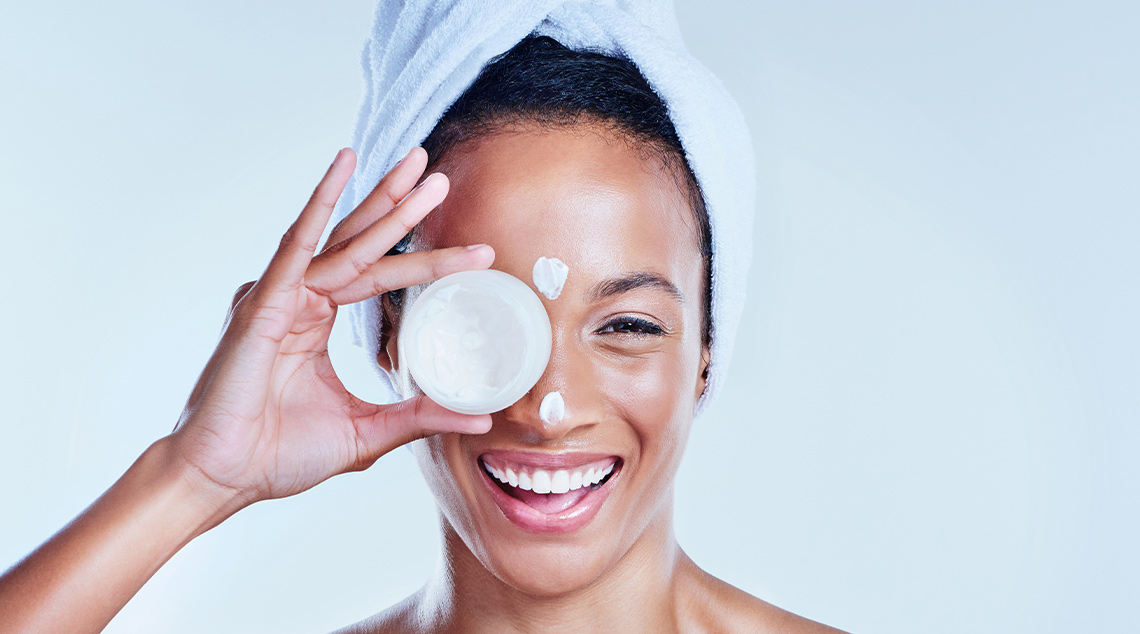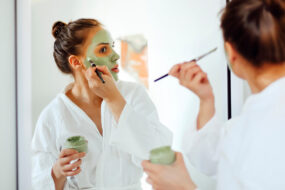Is colostrum the nourishment your skincare routine needs?
It’s often referred to as ‘liquid gold’ because of its nourishing properties, but does colostrum in skincare live up to the hype?
If the buzz in beauty circles is to be believed, getting truly supple skin may actually require using colostrum – the pre-milk fluid given to nourish newborns.
Often referred to as “liquid gold” because of its colour and nutritional benefits, it’s now the hero ingredient in everything from skincare products to supplements.
But just how crucial is colostrum to your skincare routine?
What does colostrum do?
Produced by mammals (both humans and animals) in the first few days after giving birth, colostrum is nutrient-dense and high in antioxidants.
“It contains loads of protein, vitamins and minerals,” nutritionist and naturopath Madeline Calfas says.
“It is also exceptionally high in antibodies – immunoglobulins – from the mother so that baby gets plenty of immune protection in the first few days of life on the outside.”
Skin benefits of colostrum
It seems there are plenty of benefits to be had from incorporating colostrum into your skincare routine.
A rich source of macro- and micro-nutrients, it’s packed with antimicrobial peptides and lactoferrin, which have healing properties in the body.
“A healthy body, with less inflammation, will generally have the ability to eradicate free radicals and boost your antioxidant properties in your whole body,” dermatologist and ODE Dermatology founder Dr Shammi Theesan says.
“This will then translate into younger, more supple skin.”
There’s also promising early research that shows colostrum may have a protective effect against the erosion of telomere length, thus enhancing skin health in ageing skin.
“Colostrum is known for its ability to promote epithelial cell growth factors; this basically means it helps to increase cell turnover and promote new cell growth,” Madeline says.
“This makes it a great product to help older, ageing skin that really could benefit from an increase in skin elasticity, as well as those people with sensitive, reactive or inflamed skin.”
Ready to try colostrum?
Colostrum now features as an ingredient in everything from skin creams and hydrating mists to powders and supplements.
The colostrum that’s used in supplements and beauty products is bovine-derived.
While this is fine for most people, Dr Shammi says anyone who has dairy sensitivities or is allergic to lactose, whey protein or casein should beware of taking colostrum orally.
If you’re looking to use it topically, she recommends looking at the potency of the bovine colostrum agent.
“For now, the dehydrated powders seem to have the best efficacy,” Dr Shammi says.
If you want to try colostrum at home, she suggests mixing a powder into your favourite moisturiser, then letting it sit on your skin for 10-20 minutes before washing it off.
But if you really want to increase the benefits, Dr Shammi recommends taking colostrum orally.
“It will cause healing of your gut wall [and] improve your gut microbiome; and that skin-gut axis is where we get the beneficial effects in terms of collagen production and reducing inflammation in your skin,” she says.
More on skincare ingredients:
- Does your skincare routine need a peptide boost?
- 10 skincare ingredients for your best skin yet
- How azelaic acid can help your skin
- Skincare red flags to watch for when trying new products
Written by Tania Gomez.




